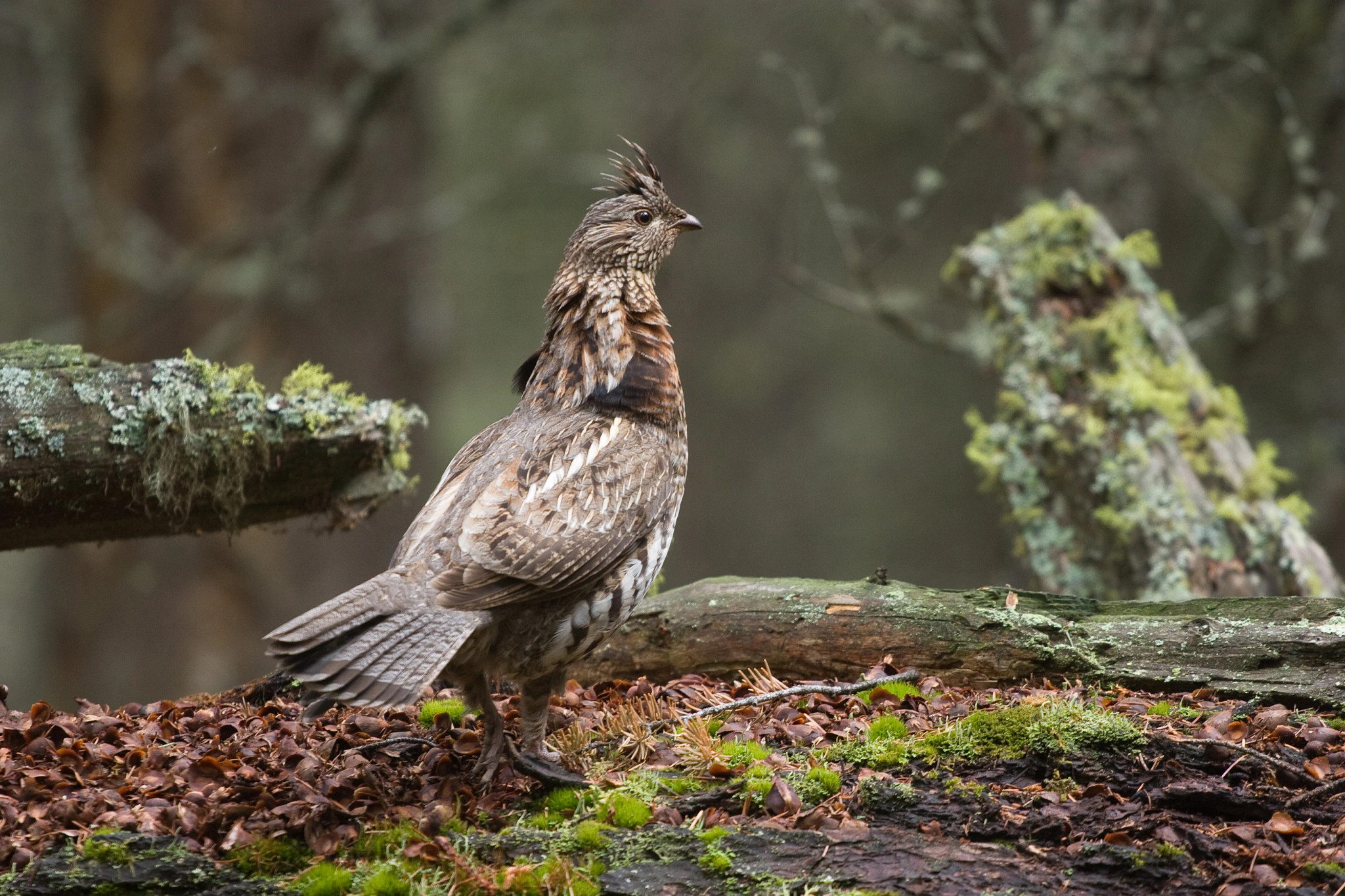DNR RELEASES THIRD YEAR OF RUFFED GROUSE WEST-NILE VIRUS TESTING RESULTS
MULTI-STATE COLLABORATION STUDYING RUFFED GROUSE ACROSS UPPER MIDWEST WILL CONTINUE FOR ONE MORE YEAR
 Blood test results from ruffed grouse collected in 2020 showed that 20% had antibodies consistent with West Nile virus exposure. The study will continue for one more year.Photo credit: iStock/R_Koopmans
Blood test results from ruffed grouse collected in 2020 showed that 20% had antibodies consistent with West Nile virus exposure. The study will continue for one more year.Photo credit: iStock/R_KoopmansMADISON, Wis. – The Wisconsin Department of Natural Resources (DNR) today released test results from the third year of the ruffed grouse West Nile virus surveillance project.
The collaborative multi-year study explores ruffed grouse West Nile virus exposure and infection in the western Great Lakes region. The study also aims to identify future research needs in Wisconsin, including a potential survival study investigating sources of mortality.
Although the DNR did not distribute new testing kits in 2020 due to the ongoing COVID-19 pandemic, Wisconsin hunters with leftover kits from previous years’ sampling efforts submitted 36 birds for testing.
As in humans, ruffed grouse can develop antibodies as an immune response to viruses they encounter. Blood test results from birds collected in 2020 showed that 20% had antibodies consistent with exposure to West Nile. Of these samples, 11% had confirmed exposure to the virus, and 9% had likely exposure to West Nile or a closely related virus. Only one of the 36 samples submitted also had detectable portions of the virus present in the heart.
“We are grateful to the passionate grouse hunters of Wisconsin who took the time to submit samples from their harvested birds,” said Alaina Gerrits, DNR Assistant Upland Game Bird Ecologist. “Without their support, this study would not be possible.”
Hunters who submitted samples and provided contact information will receive test results via email as soon as possible, regardless of whether the results were negative or positive. The ruffed grouse harvested in Wisconsin during the 2020 hunting season were sent to the Southeastern Cooperative Wildlife Disease Study in Athens, Georgia, to be analyzed. Partners in Michigan and Minnesota decided not to participate in 2020 due to the logistical challenges of COVID-19.
In 2018, 29% of the 235 samples submitted had antibodies to West Nile either confirmed or likely, and two had evidence of the virus present in their hearts. These same two birds had also developed antibodies to the virus and the results do not directly indicate these two birds were sick at the time of harvest. In 2019, 20% of 188 samples submitted had antibodies to West Nile either confirmed or likely and none of the samples had evidence of the virus present in their hearts.
West Nile Virus was first detected in Wisconsin in 2002 and identified in the state’s ruffed grouse population in 2018. Ruffed grouse were likely exposed to West Nile before 2018 since previous testing in ruffed grouse was limited.
“Continued efforts to maintain and create the quality young forest habitat that ruffed grouse rely on is our best tool to sustain our healthy grouse population in Wisconsin,” said Gerrits. “Quality habitat will help ruffed grouse better handle impacts from stressors such as disease or weather.”
In fall 2021, the DNR will assemble kits for the fourth and final year of sampling and work with conservation partners to distribute the kits to hunters. An additional year of data will increase the overall sample size and strengthen the results of the project. Hunters who have a kit from a previous year are encouraged to collect a sample, fill the kit and send it in to be processed; nothing in the kit expires.
Mosquitos spread the West Nile virus, and its effects on birds can vary. Signs range from no clinical disease or illness to heart lesions and inflammation of the brain’s lining and spinal cord. Many factors can influence how severely the virus affects an individual bird. There is no evidence that West Nile can be spread by handling dead birds or by consuming properly cooked game.
Ruffed grouse are native to the northern United States and southern Canada. The Great Lakes region contains some of the most extensive forest habitats for grouse and the healthiest ruffed grouse populations in the nation. The Wisconsin DNR continues to work with partners to develop long-term management strategies for ruffed grouse in Wisconsin.
You may also like
-
We are thrilled to invite you to the 12th annual Lake Michigan Day
-
DNR Seeking Landowners To Host Fall Gun Deer Hunt For Hunters With Disabilities
-
Find Your Next Outdoor Adventure In Wisconsin During Free Fun Weekend, June 7-8
-
2025 Spring Hearing Statewide Results Now Available
-
DNR Announces Milkweed As 2025 Plant Species Of The Year
